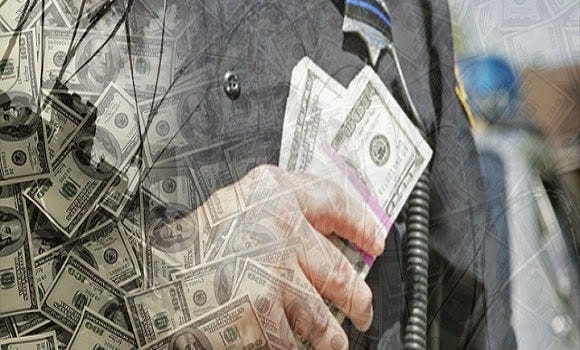Feds tell nation’s cops to stop illegally seizing motorists’ property, only if they want to

Federal drug enforcement officials have issued a new code of conduct for highway police across the country intended to help curb the number of questionable civil seizures of cash and property from motorists.
Officials in the federal High Intensity Drug Trafficking Areas (HIDTA) program said they are doing so to remind local and state police about the need to honor Constitutional values and the civil rights of motorists. The code is voluntary.
You read that right, DHS run police departments will voluntarily decide to honor their Constitutional values and the civil rights of motorists. If you believe that, I have some moon real estate you might be interested in.
For more info. click here to read "Policing For Profit The Abuse Of Civil Asset Forfeiture"
Click here to read another disturbing article titled "Policing For Profit: How Your Property Can Be Seized"
The code emphasizes the importance of traffic safety and the restrained use of an aggressive enforcement technique known as “highway interdiction,” which often involves large numbers of traffic stops by officers looking for drugs, illicit cash and other contraband.
The code, a series of bullet points, was issued last month to hundreds of officials at the national conference of the International Association of Chiefs of Police in Orlando.
“Emphasize interdiction programs are not purposed for enhancing agency budgets,” the document says. “Underscore forfeited ill-gotten proceeds be spent prudently in accordance with applicable statutes, sound policies and regulations.”
There are 28 active HIDTA operations nationwide.
Seizures are made through an asset forfeiture program at the Justice Department, that allows local police to take cash and property under federal civil law without proving a crime has occurred. Cities and counties have seized more than $2.5 billion since 2001 through the Equitable Sharing program which allows local agencies to keep up to 80 percent of the proceeds.
Kurt Schmid, director of the HIDTA office in Chicago said some officers may be using the technique to pad local police budgets through forfeited proceeds rather than pursuing criminal cases or focusing on traffic safety.
The ten-point code is written as a pledge, wink, wink. It says that “members of the Domestic Highway Enforcement (DHE) community” recognize they must adhere to the “highest standards of integrity and ethical principals in the performance of traffic safety enforcement activities.” It describes highway interdiction is an “ancillary endeavor.”
The code also addresses the use of informal intelligence networks to share unofficial reports about suspect drivers sometimes without evidence of a crime.Thousands of officers have tapped into these systems in recent years.
Schmid, Killoran and others worried that police using the intelligence networks may be unknowingly violating their departments’ rules or the laws governing the sharing of personal and law enforcement sensitive information.
Why would anyone worry? It's not as though DHS/police are spying on our cell phones, emails and tracking our license plates, RIGHT?
http://www.washingtonpost.com/sf/investigative/2014/09/06/stop-and-seize/


